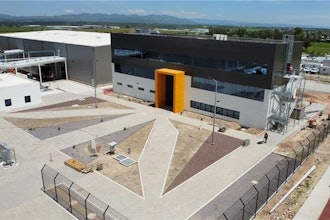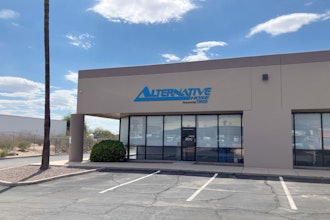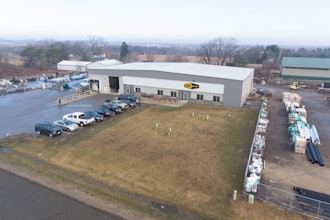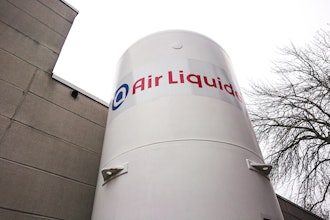5 Services for
Distribution
Value-Added
Success
How to gain customer
loyalty and grow revenue.
Brought to you by:
PAGE 2 | EPICOR
When it comes to growing the bottom line, distributors
have mastered many ways to cut operating costs, build
effi ciencies, revise sales techniques, add extra services,
develop new business strategies, and stay competitive on
market pricing.
Such game plans have reaped fi nancial benefi ts for large,
medium, and small players in the sector for many years.
But those methods, while still relevant, no longer offer a
guaranteed path to success.
In today’s Amazon era, customer expectations have
expanded. Buyers now demand instant access to
information and product data, a highly personalized
buying experience, immediate price quotations,
extra add-on services, and an overly satisfying
customer experience.
While many distributors in recent years have been
responding to the changing demands with new products,
programs, and value–added services to match the
competition, they’ve done less to truly differentiate their
operations, making it increasingly diffi cult to stand out
from the crowd, attract new business, retain long-time
loyal customers, and expand profi t margins.
“At day’s end, a balancing act is needed between
products, services attached to those products, and
optional services you provide to add value beyond what
competitors are doing,” says Michael Lovelace, senior
director of sales & business development, Americas,
in the distribution group at Epicor Software Corp.
“Determining this balance is key to
successful differentiation.”
It involves going beyond the norm by incorporating the
proper technologies required to implement a host of new
value-added services that not only increase customer
satisfaction and retain loyalty, but also surpass the
convenience and low-cost alternatives offered
by Amazon.
In this paper, we will examine fi ve key services that
can add greatly to distributor differentiation, customer
satisfaction, and the bottom line for both:
• Service & Repair
• Vendor Managed Inventory (VMI)
• Rentals
• Manufacturing
• Job Management
SERVICE & REPAIR:
DIFFERENTIATE, DON’T ALIENATE
Service agreements have become increasingly popular in
distribution circles and have proven to increase customer
renewal rates and build recurring income streams, but
only if administered and driven using the latest integrated
and fl exible advanced software systems.
If not handled correctly, such agreements can cause even
long-time loyal customers to abandon ship. While many
customers appreciate the convenience and fi nd it well
worth the added expense, if management of the service
is disorganized resulting in unreliable maintenance and
repairs, it becomes a value-subtracted option that refl ects
poorly on the distributorship and can lead to the costly
loss of business.
Fortunately, superior service and maintenance
software now exists to simplify and automate the
entire service process.
____________________________________________________
New technologies can help distributors
keep track of inspection and preventative
maintenance schedules, along with the data
and analytics needed to drive a superior
customer experience.
____________________________________________________
Today’s advanced software allows distributors to easily
enter and process service quotes, order and replenish
parts directly from existing inventory, set up labor and
technician schedules, track full sales and service history
for all serial numbers, and minimize data entry through
an automated process without the need for a separate
inventory system.
Advanced systems have enabled many large distributors
to differentiate themselves from competitors by
successfully implementing customer-centric value-added
options that grow income and boost margins.
One such distributor, Winona, MN-based Fastenal, a
supplier of fasteners and tools, provides customers with a
range of added services, including calibration and repair;
cut-to-length metal, chain, and cable; hose fabrication;
tool repair and certifi cation; and even a gas detection
rental program whereby customers can go online to
request short-term or long-term, portable gas detection
PAGE 3 | EPICOR
instrumentation products customized for their unique
needs on a daily, weekly, or monthly basis.
The company, which fi nished in the top fi ve on Industrial
Distribution’s 2018 Big 50 List, further enhances offerings
by providing point-of-access vending and other onsite
inventory and service options that generated 13 percent
sales growth in each quarter of 2018, with full-year gross
profi t up 11 percent. Fastenal reported that the vending
portion of its business registered approximately 20
percent growth in sales for the year.
MINDING THE STOCK
In the Amazon age, customers have become increasingly
demanding, expecting distributors to be agile, fl exible,
quick, and connected as close ‘partners’ in business.
Nowhere is that more evident than in inventory
management, product availability, monitoring, and timely
delivery to avoid backorders and costly delays.
To do that, many distributors today offer VMI as a value-
added service, a system that essentially lets the distributor
take control of customer product supply, assuring the
customer that it won’t run out of products and locking in
ongoing sales for the distributor.
It’s a win-win for both distributor and customer on many
levels, but what it isn’t is a true differentiator since so
many distributors offer the service.
In order to stand out from the pack, it is critical for
distributors to leverage the latest VMI technology to make
the whole process easy, mobile, web-based, and fl exible.
Implementing the proper software can help distributors
minimize the risk of costly and disruptive emergency
orders and further establish a close and ongoing
partnership with customers.
Field Fastener Supply Company, based in Machesney
Park, IL, is one company that has made VMI an art form,
enabled by Epicor’s Prophet 21 system.
____________________________________________________
‘Quality is everything about the experience
with the customer… and all that really
happens through the ERP system,’ says Jim
Derry, Field Fastener president. ‘The bottom
line is that we work with our customers to help
them save money and cut costs.’
____________________________________________________
Field Fastener does that in two ways: managing customer
inventory, including VMI services, and lowering the costs
to assemble, join, and fasten products together.
Without proper inventory management software,
overhead can slowly climb out of control. With a high-end
inventory system driven by data, Field Fastener’s goal is
to ensure that the customer always has material where
they need it, when they need it, and in the most
effi cient manner.
“We see Prophet 21 as a competitive advantage to help
us provide the best level of customer service and drive
costs out of the business and to improve the accuracy
and quality of our services to meet our customers’
expectations,” Derry adds. “Clearly, we make better
business decisions today than we did before Prophet 21.”
RENTALS ON THE RISE
Equipment rentals have long been a lucrative business
for retailers and big box stores like Home Depot. Since
the Great Recession that began in 2008, many contractors
and service-oriented companies began leaning toward
rentals to contain operating costs and keep up to date
with technology needed for specifi c or limited jobs.
In more recent times and with rapidly advancing
technology, industrial distributors are starting to get into
the act as well. It’s becoming yet another potentially huge
differentiator and one that likely will continue to generate
new revenue streams for many years to come.
____________________________________________________
The American Rental Association (ARA) has
projected that U.S. Equipment Rental Industry
revenue will grow consistently to nearly $60
billion by 2021 with a compound annual
growth rate (CAGR) of 4.7 percent from 2017
to 2021.
____________________________________________________
Investment in rental equipment is expected to increase by
8.8 percent in 2019, 3.2 percent in 2020, and 0.4 percent
in 2021, surpassing $15 billion that year, according to
ARA estimates.
PAGE 4 | EPICOR
But, rental management is highly complex and requires
sophisticated software because inventory, maintenance,
tracking, and business functions can vary widely
depending upon the nature of the rental business, the
types of products involved, customer relations, and the
handling of fi nancial data in dynamic transactions.
The proper rental management software helps simplify
the entire process, including online orders, on-premises
fulfi llment, and electronic invoicing.
One distributor taking advantage of rental services in
a big way is a unit of Radnor, PA-based Airgas, ranked
No. 2 in the 2018 Industrial Distribution Big 50 List.
The company’s Red-D-Arc Welderentals™ operation
rents and leases welders, welding positioners, welding-
related equipment, and electric power generators
to global customers through a network of 70
service centers.
The Airgas unit’s program allows users to keep pace
with new technology, take advantage of replacement
equipment when necessary at no charge, and turn in
the equipment along the way with optional mid-term
equipment upgrades.
Since industrial rentals can be leagues apart from
consumer-oriented services like car, cell phone, or
appliance rentals, choosing the right software vendor is
critical when entering this complex, but highly lucrative
business channel.
To that end, a rental platform built by a software
company with deep knowledge of the distribution
sector, the management of distributor-specifi c inventory
procedures, along with the fl exible and transparent
upfront, internal, and backend technology required, is
highly recommended.
Employing a software vendor with a deep distribution
knowledge base can quickly and easily guide any
industrial distributor focused on growing an existing
rental program, entering this new and lucrative value-
added business, or building the framework to allow for
future entry into true distributor differentiation.
LIGHT MANUFACTURING SHINES
Many distributors have been providing kitting, assembly,
and a range of light manufacturing services for several
years, either for additional revenue generation or as an
extra benefi t folded into sales agreements.
Such added services can be a major differentiator for
distributors, especially if the offering signifi cantly raises
the level of customer satisfaction, helps extend an
ongoing distributor-customer relationship, and serves to
attract new customers.
___________________________________________________
‘It’s important to make sure customer
requirements are well understood, establish
a clear distinction between product-attached
and optional services, and make sure both
types are priced correctly,’ according to
industry consultant Dr. William R.
McCleave, Jr. P.E.
___________________________________________________
McCleave, president of W. R. McCleave & Associates,
emphasizes that value-added services must be
supported by the proper processes and technologies
required to make them profi table and deliverable.
With that in mind, today’s software technology designed
for manufacturing processes can easily be integrated
into an industrial distributor’s ERP system.
An example of success in the integration of software
designed for distributors that are focused on a range of
value-added and companion services like manufacturing
and assembly can be seen in developments at DeeTag
Ltd. of London, Ontario, Canada.
To improve the effi ciency of its warehouse operations,
DeeTag, a distributor of hydraulic and pneumatic
equipment, parts, and supplies, turned to advanced
ERP and warehouse management software from Epicor
that can forecast product demands and allow the
distributor to stay on top of specifi c hoses that need to
be assembled.
“We have also added the light manufacturing module
for our hose assembly facilities, and are seeing
improved effi ciencies within the production queue,”
Dean Gordon, DeeTag president reported.
While Gordon cites better inventory control as the
biggest benefi t of implementing the software, he also
pointed to features that are continually being added to
make it even more useful for fl uid power distributors.
“The kitting and hose decoder features are very
powerful,” he said. “We’ve also adopted new signature
PAGE 5 | EPICOR
capture technologies, both at our sales counter and
via PDAs for deliveries. Having customers in the U.S.
and Canada and vendors all over the world makes the
multi-currency and container receipts functionalities very
convenient for our business.”
JOB MANAGEMENT LIFTS PRODUCTIVITY
Taking advantage of the latest software technology and
increased automation at distributorships also helps
eliminate redundancies in manual processes and
allows workers to spend more time on critical tasks,
guided by job management software designed to
improve operational effi ciency and productivity to
the highest levels.
Sophisticated job management technology available
today not only allows manufacturers and distributors
to keep a close eye on individual worker productivity
levels, but also allows them to track the time it takes
workers to handle specifi c jobs and orders.
__________________________________________________
Top-class ERP solutions can boost
development of lean manufacturing
techniques, enable top manufacturing
execution systems, build quality assurance
standards, and keep the focus on advanced
quality management techniques.
___________________________________________________
Such tools are vital components for any successful
operation—especially those that produce or sell complex
products alongside repetitive ones—and require
exceptionally fl exible and versatile software in order
to accommodate combinations of make-to-order,
confi gure-to-order, engineer-to-order, and make-to-
stock products.
With the proper production management software,
labor tracking tools, and service-oriented architecture in
place, companies can establish continuous performance
initiatives, mobilize workers, offer real-time connectivity,
promote social collaboration, gather intuitive business
intelligence, and provide greater business agility in
pursuit of service perfection.
It’s a scalable, fl exible, confi gurable, and effective route
toward achieving value-added distribution excellence
and delivering the highest level of customer satisfaction
for long-term success.
About This Report
The information in this iReport was
researched and produced by Industrial
Distribution (Advantage Business
Marketing) in conjunction with Epicor.
About Epicor
Epicor Software Corporation
(epicor.com) provides industry-specifi c
business software designed around the
needs of manufacturing, distribution,
retail, and services organizations. Epicor’s
more than 40 years of experience with
its customers’ unique business processes
and operational requirements is built into
every solution—in the cloud, hosted, or
on premises.
Contact us for more information
on Epicor Products and Services:
+1.800.776.7438
[email protected]
epicor.com
5 Services for Distribution Value-Added Success
While many distributors in recent years have been responding to the changing demands with new products, programs, and value–added services to match the competition, they've done less to truly differentiate their operations, making it increasingly difficult to stand out from the crowd, attract new business, retain long-time loyal customers, and expand profit margins. In this paper, we will examine five key services that can add greatly to distributor differentiation, customer satisfaction, and the bottom line.
Latest in Home
Winsupply Adds North Texas Subsidiary
August 28, 2025
ABC Supply Acquires Mississippi Company
August 27, 2025






















